The chances of an early rise in UK interest rates have fallen, says the Bank of England’s chief economist, Andrew Haldane, who admits he is “gloomier” about the prospects for the economy than he was a few months ago.
In a speech on Friday morning, which will reinforce market views that rates are unlikely to rise from their record low of 0.5% until the middle of next year, Haldane said: “That reflects the mark-down in global growth, heightened geo-political and financial risks and the weak pipeline of inflationary pressures from wages internally and commodity prices externally.
“Taken together, this implies interest rates could remain lower for longer, certainly than I had expected three months ago, without endangering the inflation target,” said Haldane, a member of the Bank’s nine-member interest rate setting committee.
The prospect that interest rates will stay lower for longer sent sterling tumbling on the foreign exchanges, with the pound losing half a cent against the dollar.
Haldane also warned that Britain was vulnerable to another explosion in the eurozone crisis.
He told ITV News: “It’s a concern. It [the eurozone] is our biggest trading partner by far. We know we’ve seen recently that any event on the continent laps back to the UK very quickly through our trade links, but also through our financial links and, indeed, increasingly just because of confidence. If confidence is ebbing on the continent, it appears to leak across here pretty quickly.”
In June, Haldane had put even weight on moving interest rates sooner and moving them later. He used the cricketing terms “being on the front foot” and being on the “back foot”.
On Friday, he said: “While still a close-run thing, the statistics now appear to favour the back foot. Recent evidence, in the UK and globally, has shifted my probability distribution towards the lower tail. Put in rather plainer English, I am gloomier.”
His speech to the Kenilworth Chamber of Trade in Warwickshire, entitled Twin Peaks, cites “plenty of reasons to be cheerful” but also “reasons to be fearful”.
On the upside, Haldane says growth in the UK is the fastest of the G7 advanced economies, the recession appears to have been shallower than first thought, growth is “reasonably well-balanced between consumption and investment”, inflation has slowed, unemployment is falling and share prices are up.
But he lists three features of the UK economy that “paint a more sobering picture”: falling real-wage growth, flat-lining productivity and real interest rates around zero per cent.
Explaining the impact of those features, he said: “These indicators clearly have an important bearing on macro-economic health: among workers, whose disposable incomes have fallen materially below their pre-crisis levels; among savers, the rates of return on whose assets have fallen materially below their pre-crisis levels and are near-zero in inflation-adjusted terms; and among companies, whose underlying efficiency has flatlined since the crisis.”
Haldane has drawn up an “agony index” for the UK, a simple index of real wages, real interest rates and productivity growth.
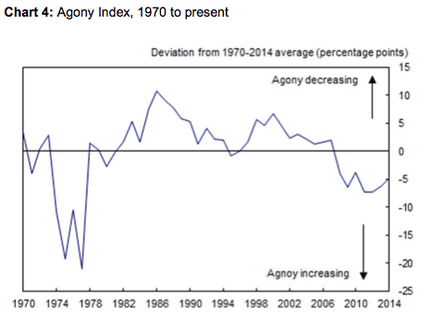
He said: “The agony index is currently at painfully low levels. It has been around 5 percentage points below its 1970-2014 average since 2008.
“Such an extended period of agony is virtually unprecedented going back to the late 1800s, with the exception of the aftermath of the world wars and the early 1970s.”
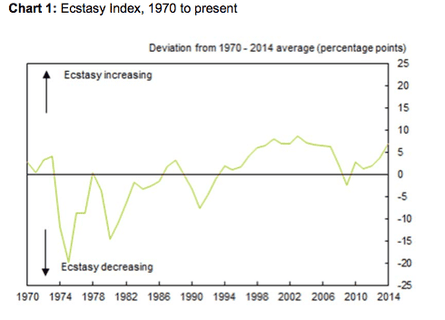
Haldane’s speech follows news earlier this week of a drop in inflation to 1.2% in September, well below the Bank’s 2% target. That sparked big moves in financial markets to push back bets of when the Bank’s policymakers will vote to hike rates, which have been at 0.5% since 2009. Markets had until then been pricing in a significant chance of a rate hike to 0.75% in the early months of 2015, but are now looking to the summer.
Haldane’s words about the strains on workers will resonate with the many households who have seen their income fail to keep up with inflation. Even with inflation coming down sharply on the latest figures, wages have continued to fall in real terms.
“Growth in real wages has been negative for all bar three of the past 74 months. The cumulative fall in real wages since their pre-recession peak is around 10%. As best we can tell, the length and depth of this fall is unprecedented since at least the mid-1800s,” said Haldane. “This has been a jobs-rich, but pay-poor, recovery.”
He was cautious about the longer-term outlook for the economy, noting that the monetary policy committee had been over-optimistic in the past.
“The MPC, in common with every other mainstream forecaster, has been forecasting sunshine tomorrow in every year since 2008 – that is, rising real wages, productivity and real interest rates. The heatwave has failed to materialise. The timing of the upturn has been repeatedly put back.”
He said the mixed picture would be around for some time.
“If this story of a growing, but diverging, economy is right, then the message is clear. Forecasts of both macro-economic sunshine and showers, tales of both agony and ecstasy, sightings of both the upper and lower peaks, may be here for some time to come.”
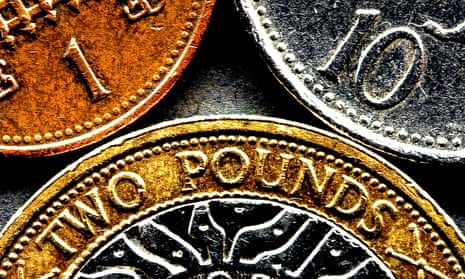

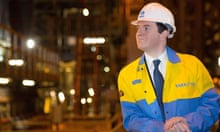
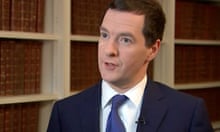
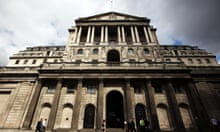
Comments (…)
Sign in or create your Guardian account to join the discussion